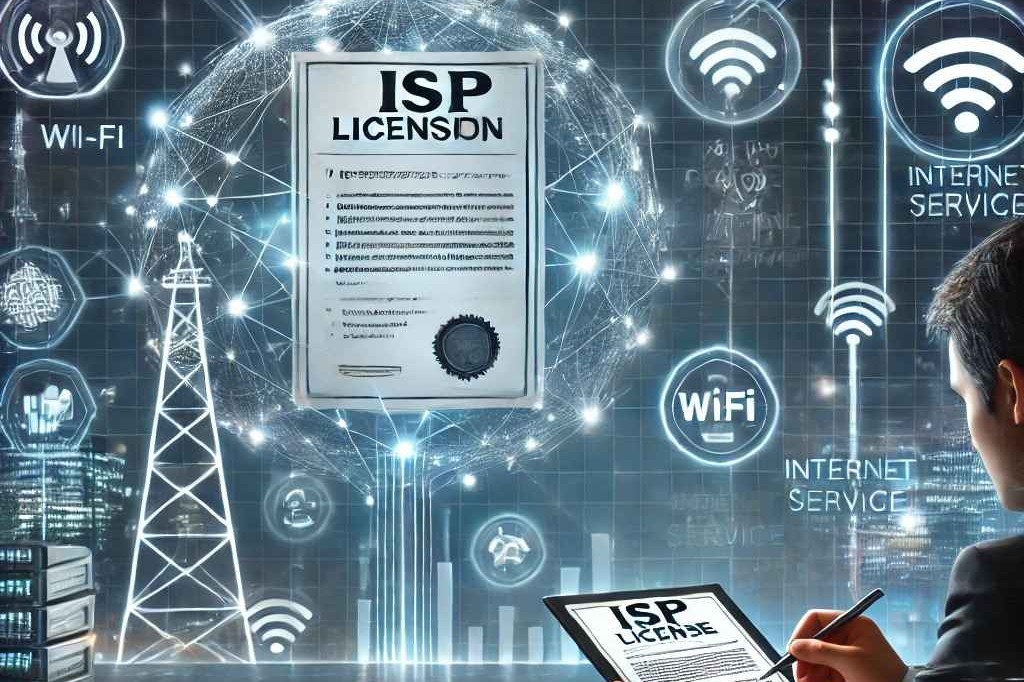17 February 2025
How to Obtain an ISP License in Indonesia
An Internet Service Provider (ISP) is an entity that provides internet services to individual users and businesses. To legally operate an ISP business in Indonesia, companies must obtain an official license from the government. The licensing process is regulated by the Ministry of Communication and Informatics (Kominfo) and other relevant agencies.
This article will discuss the steps to obtain an ISP license in Indonesia, the requirements that must be met, and the challenges that may arise during the process.
1. Types of ISP Licenses Required
Before applying for a license, it is important to understand the different types of licenses available:
Network Operation License (IPJ) – For service providers who want to build their own network infrastructure.
Service Operation License (IPJ) – For companies that use third-party network infrastructure to provide internet services.
Private Fixed Network License (IPJTT) – For internet services within a specific area, such as corporate offices or industrial zones.
Telecommunications Network License (IPJT) – For operators looking to develop broader telecommunications infrastructure.
2. Requirements and Necessary Documents
To apply for an ISP license, companies must fulfill both administrative and technical requirements:
Administrative Requirements:
Company Establishment Deed & Ministry of Law and Human Rights Approval (SK Kemenkumham) – The company must be a legally registered business (PT) in the telecommunications sector.
Business Identification Number (NIB) – Obtained through the Online Single Submission (OSS) system.
Company Domicile Certificate – A clear and legal company office address.
Taxpayer Identification Number (NPWP) and VAT Registration Certificate (SPPKP) – Required for tax compliance.
Company Organizational Structure – Outlines corporate governance.
Technical Proposal – Provides details about the ISP services to be offered.
Partnership Agreement (if applicable) – Required if using a third-party infrastructure.
Technical Requirements:
Network Design – A diagram and explanation of the planned network infrastructure.
IP Address Allocation – Registration of IP addresses with APJII (Indonesia Internet Service Providers Association) or other providers.
Equipment and Infrastructure – Specifications of the hardware used for ISP services.
3. ISP License Application Procedure
Here are the steps to obtain an ISP license in Indonesia:
1. Registration via Online Single Submission (OSS)
Access https://oss.go.id and create a company account.
Apply for a license under the Telecommunications category.
2. Submission to the Ministry of Communication and Informatics (Kominfo)
Submit all administrative and technical documents to the Directorate General of Postal and Informatics Operations (Ditjen PPI).
Wait for verification and evaluation from the Kominfo team.
3. Evaluation and Verification
Kominfo will conduct document verification, feasibility studies, and site inspections if necessary.
If the evaluation is successful, the company will be granted an ISP operating license.
4. Payment of PNBP Fees
After approval, the applicant must pay the Non-Tax State Revenue (PNBP) fee as per government regulations.
5. License Issuance
Once the payment is made and all requirements are met, the ISP license will be issued, allowing the company to legally operate.
4. Challenges in the ISP Licensing Process
Although the ISP licensing process is clearly outlined, businesses may encounter several challenges:
Changing Regulations – Government policies can change, requiring companies to stay updated with the latest regulations.
Strict Technical Requirements – Incomplete technical documents may result in delays or rejections.
Operational and Infrastructure Costs – Setting up an internet network requires significant investment.
Market Competition – Once licensed, companies must compete with established ISPs in the market.
Obtaining an ISP license in Indonesia requires a thorough understanding of regulations, along with strong administrative and technical preparation. By following the outlined steps, businesses can legally acquire a license and start providing internet services to customers.
For companies looking to accelerate the licensing process, partnering with a telecommunications consultant can be a smart choice. With a valid license, ISPs can operate safely and competitively in Indonesia's digital market. 🚀
Is this information helpful?
